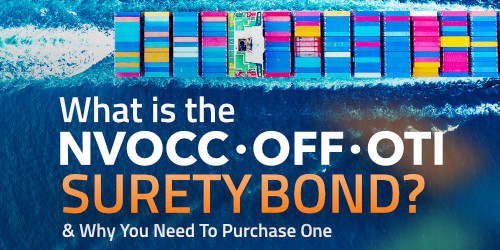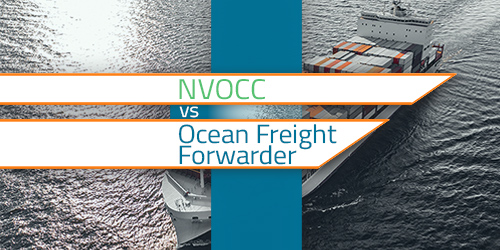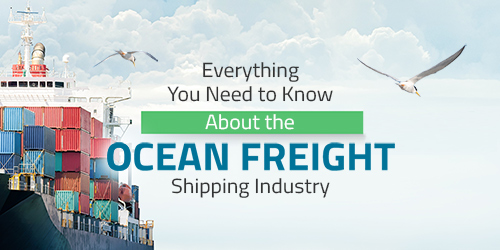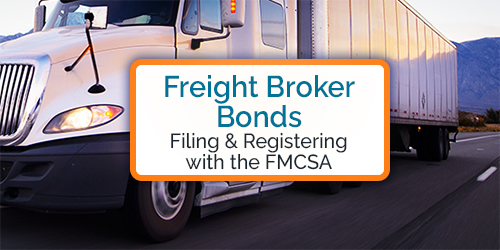Get Your Customs Bond Quote Today
Can't find what you need?
Let our bond experts help!
Get Started »
No obligation, takes 2 minutes
If you'd prefer, call us at
Why is a Customs Bond Required?
Every product, good, or raw material imported into the United States may be (most likely is) subject to fees and duties.
These fees and duties are required not only to raise income for government projects, but to ensure foreign goods and materials are not given an unfair advantage compared to locally sourced goods and materials.
In simple terms, these fees and duties help level the playing field in the business or consumer markets of the United States.
To hold importers accountable to paying these fees and duties, the CBP requires a surety bond called the Activity Code 1 - Continuous or Single Transaction bond.
There may be additional surety bonds required depending on the type of goods or materials being imported:
- Restricted merchandise
- Overtime services
- Antidumping duties
- Countervailing duties
- Temporary importations under bond
- Drawback payments
Again, there are other types of bonds, but they are more involved in the transportation of goods. We will focus on the bonds directly related to importing.
What is the Continuous Bond and Single Transaction Bond Amount
A single transaction bond is required under three main circumstances:
Single Transaction Bonds
One Time Importation
Required if a business is importing goods or materials only one time during a calendar year. In this case the business is likely not in the Importing business.
Increased Import Value
Required if a business has increased the amount of goods or materials being imported. In this case, a single transaction bond may be required to make up for the additional goods if their continuous bond is deemed not adequate coverage.
Special Import Circumstances
Required if a business is importing restricted materials or requires expedited processing, a special type of single transaction bond may be required, again if the continuous bond is deemed not adequate coverage.
The bond amount is determined based on the value of goods and an estimated amount of fees and duties.
The CBP will tell you the required bond amount, and the amount will never be less than the value plus all duties and fees.
Continuous Bonds
A continuous bond is a customs bond that covers all importing activity over the course of the bond term.
The bond amount for a continuous bond is:
BOX: The greater of $50,000 or 10% of the total estimated duties and fees in the previous 12 months.
The bond amount can change based on the volume of goods being imported from one year to the next.
Remember, based on the goods and materials being imported you may be required to purchase an additional single transaction bond if your current continuous bond is deemed inadequate coverage by the CBP.
What Is The Cost of a Continuous Bond and Single Transaction Bond?
The cost to purchase a continuous or single transaction bond depends on your specific amount and a rate quoted from by a surety. A surety is the company that underwrites surety bonds.
Every surety will uses their own independent analysis of the applicant using factors such as:
- The personal credit of the owner and/or owners
- The previous experience of owner and/or owners
- Prior bond claims from any previous customs bonds if they exist
This is why it's so important to work with a specialized surety agency when purchasing the customs bonds you need to run your business.
A specialized surety agency like Surety Bonds Direct can save you hundreds of dollars for every bond you need.
Why Use Surety Bonds Direct?
Surety Bonds Direct works with the top A rated sureties and can price shop rates to get you the lowest price. This can save you hundreds of dollars for every bond. The larger the bond amount the more you will save.
Let's look at the minimum continuous bond amount of $50,000 for example pricing. The rates in the table below are from really good to average.
| Bond Amount | Surety Bond Rate | Price You Pay |
|---|---|---|
| $50,000 | 0.8% | $400 |
| $50,000 | 1% | $500 |
| $50,000 | 1.5% | $750 |
| $50,000 | 2% | $1,000 |
| $50,000 | 3% | $1,500 |
The only way you will know your exact price is to request a free, no-obligation, price quote today.
It typically takes your bond specialist a few business hours to find the lowest rate. Then you'll have exact pricing so you can decide on the next course of action for your business and timeline.
Request a free bond quote online or call a bond specialist at 1-800-608-9950.
How Long Does a Continuous or Single Transaction Bond Last?
All surety bonds have a term. The term is the length of time the bond remains active before it must be renewed for another term.
Single transaction bonds, as the name states, are only required for the single import activity.
Continuous bonds have a 12 month bond term from the effective date. The effective date is chosen by you when you purchase your bond.
You must renew your bond prior to the bond's expiration date.
This is another great reason to work with Surety Bonds Direct. We manage the lifecycle of your bond for you.
As your bond expiration date approaches, your bond specialist will reach out to you 30 to 40 days in advance to make renewing your bond fast and easy.
Customs Bonds Are Continuous
A continuous bond is a surety bond that remains active from bond term to bond term.
This means once you pay the renewal premium, the initial bond you filed with the CBP will remain active. There's nothing additional for you to do.
What Happens After You Purchase Your Customs Bond?
Once you complete your purchase, our bond issuance team will get to work to prepare your bond with the:
- Correct bond form
- Necessary signatures
- Seals
- Power of Attorney
The US Customs and Border Patrol allows this bond to be emailed. This speeds the process to get your bond up. Once your bond is complete, we can email it to you and you won't have to wait for mail.

NVOCC Bond And OTI Bonding Requirements
Getting your OTI license? Learn about the NVOCC bond and all of the OTI bonding requirements including OFF bonds. Watch this video now!

NVOCC vs Freight Forwarder: The 5 Major Differences And How To Get Licensed
An NVOCC and Ocean Freight Forwarder may seem the same. But they're difference in 5 major ways. Let's look and learn how to get licensed in both.

Everything You Need to Know About the Ocean Freight Shipping Industry
From cars to toys to industrial chemicals to food, the goods that consumers rely on every day often arrive via ocean freight shipping.

How to Become a Freight Broker
With a booming consumer-driven economy and an eCommerce landscape that’s growing at lightning speed with no signs of slowing anytime soon, there’s enormous demand for all things transport in 2019.

Freight Broker Bonds – Filing & Registering with the FMCSA
Find out more about the Federal Motor Carrier Safety Administration (FMCSA) required surety bonds for freight forwarder or broker of freight registration.
Can't find what you need?
Let our bond experts help!
Get Started »
No obligation, takes 2 minutes
If you'd prefer, call us at


